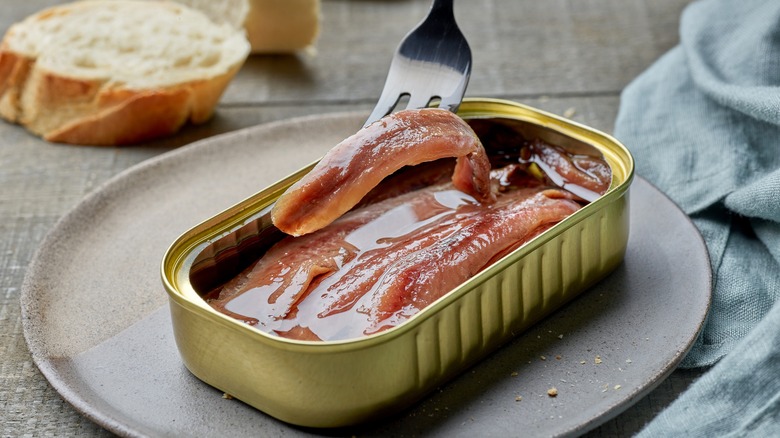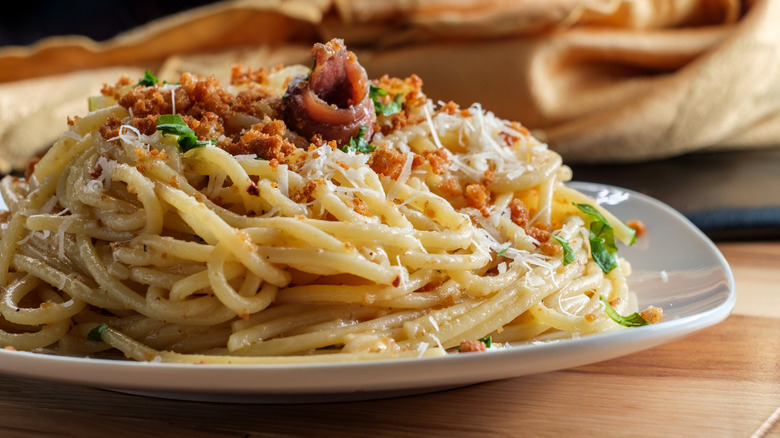Why Anchovies Are Delicious In Recipes, Even If You Don't Usually Like Fish
Although Italy, Greece, Spain, Portugal, and France are all known for different food specialties, the countries do share a common culinary affection for the Mediterranean diet. People adopting this lifestyle generally eat a diet that's low in red meat, sugar, and saturated fat and high in fruit, vegetables, fish, whole grains, olive oil, and nuts, according to the Harvard School of Public Health. In addition to the food component, these people often stay active and drink wine in moderation. This low-stress way of living has been praised as a whole-food approach that is easy to maintain, unlike some gimmicky fad diets. Although weight loss may not be the goal, the Mediterranean diet has been shown to keep weight under control.
Fish high in omega-3 fatty acids, such as anchovies, are an essential part of the Mediterranean diet. Just 2 ounces of this superfood can help reduce the bad cholesterol responsible for junking up your arteries, causing strokes and heart attacks. Anchovies also aid your energy levels and heart and bone health, and they may even improve brain function. With all their benefits to our bodies, why are these petite fish so maligned?
People have a complicated relationship with anchovies. If you love the tiny silver fish, you will eat them straight out of a tin. If you've never had one, chances are you think it will be gross and you'll hate it. It's a pretty polarizing food. However, others may fall into a separate category, openly detesting these little fish while unknowingly eating them for years. (Surprise, kids.)
How to subtly cook with anchovies
Whether you know it or not, anchovies are probably part of your diet — not only in the dressing on your caesar salad but also in the jarred goods in your kitchen like Worcestershire sauce, some barbecue sauces, kimchi, garum, and that delicious caponata that you've spread on bread (via WebMD). According to Bon Appétit, anchovies are often the secret ingredient used in recipes to provide umami, that "fifth taste" that adds savoriness to a dish. Per Healthline, foods with high levels of the amino acid called glutamate, like Parmesan cheese, soy sauce, and anchovies, naturally have umami. MSG (monosodium glutamate) is commonly added as a seasoning to enhance umami in a dish.
If you aren't ready to drape whole anchovies on a piece of crostini just yet, there are ways you can and should incorporate the fish into your cooking — without anyone else knowing. Giada De Laurentiis said more people should eat anchovies by using anchovy paste, sold in a tube like toothpaste so it's easily added to sautéed onions and garlic for pasta sauce or dressing. The ingredient practically disappears into hot oil, so no one will be able to identify it even while remarking on that desirable savoriness. The same is true with whole fillets, which stay good in the fridge for months when stored properly. Try adding anchovies to your favorite pasta puttanesca recipe — made even more delicious with a topping of breadcrumbs sautéed with anchovies and olive oil, promise!

